Jimmy Carter: James Earl Carter Jr., born on October 1, 1924, is a retired American politician renowned for his contributions to the nation’s leadership. He served as the 39th president of the United States from 1977 to 1981 and was a member of the Democratic Party. Prior to his presidency, he held key positions such as the 76th governor of Georgia from 1971 to 1975 and a Georgia state senator from 1963 to 1967.
RELATED: Did Kanye actually change his name to Yitler?
Carter’s origins trace back to Plains, Georgia, where he was raised. After graduating from the U.S. Naval Academy in 1946, he joined the U.S. Navy’s submarine service. Returning to his hometown, he revitalized his family’s peanut-growing business. Demonstrating his stance against racial segregation, he actively supported the civil rights movement and engaged in Democratic Party activism. He served as a Georgia State Senator from 1963 to 1967 and then as Georgia’s governor from 1971 to 1975. Despite being relatively unknown outside of Georgia, Carter secured the Democratic nomination and narrowly defeated incumbent Republican president Gerald Ford in the 1976 U.S. presidential election.
During his presidency, Carter made significant decisions, including pardoning Vietnam War draft evaders and formulating a comprehensive national energy policy encompassing conservation, price control, and technological advancements. His administration achieved notable diplomatic accomplishments such as the Camp David Accords, Panama Canal Treaties, and Strategic Arms Limitation Talks II. Carter also navigated challenges like stagflation, established the U.S. Department of Energy and the Department of Education, and addressed crises like the Iran hostage situation, the energy crisis, and the Three Mile Island incident.
He confronted international events including the Nicaraguan Revolution and the Soviet invasion of Afghanistan, responding with actions that intensified the Cold War, such as imposing a grain embargo on the Soviets and leading a boycott of the 1980 Summer Olympics in Moscow.
After leaving office, Carter founded the Carter Center to advocate for human rights and was honored with the Nobel Peace Prize in 2002. He engaged in global peace negotiations, election monitoring, and efforts to combat infectious diseases. Carter played a vital role in the nonprofit organization Habitat for Humanity and authored various books encompassing political memoirs, poetry, and analysis of international issues.
His evaluations of the Israeli-Palestinian conflict, critiquing Israel’s treatment of Palestinians as apartheid, added to his contributions. While historical assessments of his presidency vary, his post-presidential endeavors are widely regarded as extraordinary. Carter holds the distinction of being the longest-lived American president and the one with the longest post-presidential period. He also ranks as the third-oldest living individual to have led a nation.
Table of Contents
Jimmy Carter’s Profile Summary
| Full name | James Earl Carter Jr. |
| Nickname | Jimmy |
| Profession | Former US President |
| Date of birth | October 1, 1924 |
| Age of 2023 | 98 Years |
| Birthplace | Plains, Georgia, United States |
| Nationality | American |
| Zodiac sign | Virgo |
| Ethnicity | Not Known |
| Religion | Christian |
| Home town | Plains, Georgia |
Jimmy Carter Biography
Born on October 1, 1924, in Plains, Georgia, at the Wise Sanitarium where his mother was employed as a registered nurse, James Earl Carter Jr. holds the distinction of being the first American president born in a hospital. He was the eldest child of Bessie Lillian Gordy and James Earl Carter Sr. His lineage traces back to English immigrant Thomas Carter, who arrived in the Colony of Virginia in 1635. For generations, the Carter family engaged in cotton farming in Georgia.
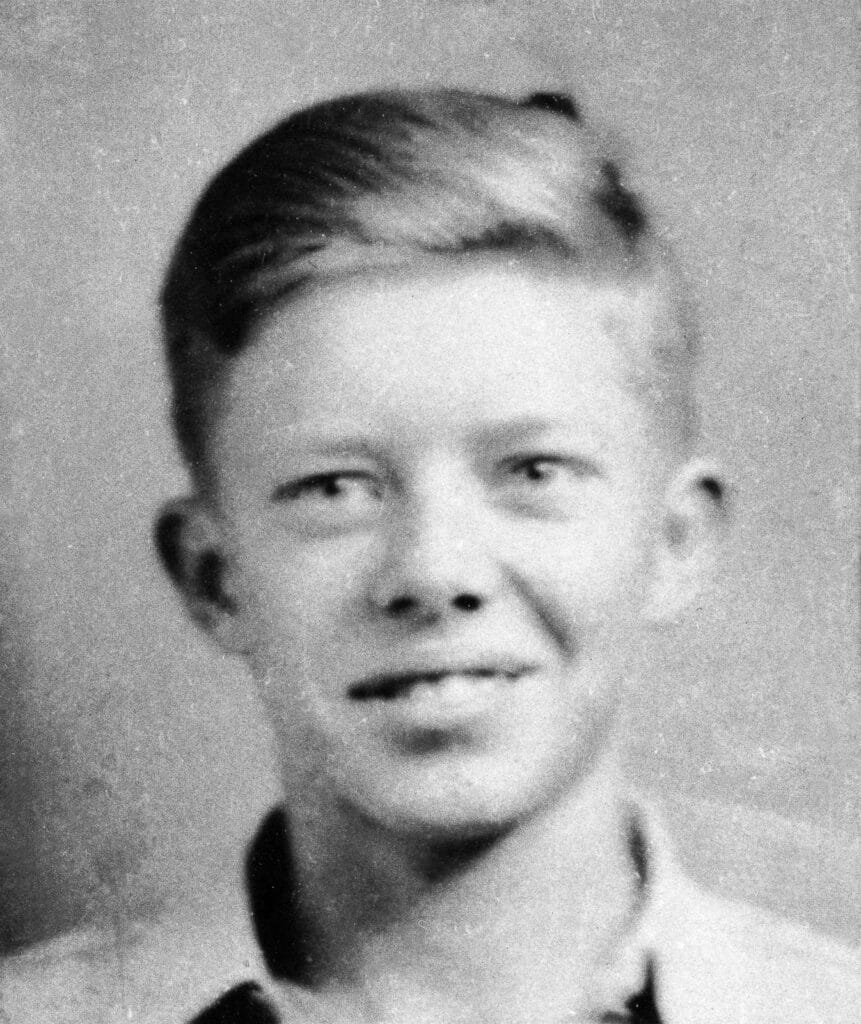
Plains, with a population of around 600 people during Carter’s birth, thrived as a burgeoning town. Carter’s father was a successful local entrepreneur, managing a general store and investing in farmland. His father’s past included service as a reserve second lieutenant in the U.S. Army Quartermaster Corps during World War I.
Throughout Carter’s early years, his family relocated frequently, eventually settling on a dirt road in nearby Archery. This area was predominantly inhabited by impoverished African American families. Carter’s family expanded with the arrival of three more children: Gloria, Ruth, and Billy. Despite challenges, Carter maintained positive relationships with his parents. His mother’s demanding work hours kept her often absent during his childhood.
Although his father held segregationist views, he allowed Jimmy (as he was known) to befriend the children of Black farmhands. Even as a teenager, Carter exhibited entrepreneurial spirit. He was granted his own acre of his father’s farmland, where he cultivated, packaged, and sold peanuts. Additionally, he rented out a portion of tenant housing he had acquired.
Education
From 1937 to 1941, Carter attended Plains High School, completing up to the eleventh grade due to the absence of a twelfth grade at the school. During this era, both Archery and Plains grappled with the economic hardships brought on by the Great Depression. However, the Carter family benefitted from New Deal farming subsidies, and his father stepped into a role as a community leader.
Carter was an assiduous student and possessed a genuine love for reading. An amusing story recounts that he missed the opportunity to become valedictorian when he and his friends skipped school to cruise downtown in a hot rod. This episode of truancy was documented in a local newspaper, though it remains unclear if he would have been valedictorian regardless.
During his time as a teenager, Carter was actively involved in Plains High School’s basketball team and also became a member of the Future Farmers of America, a youth organization that ignited his lifelong interest in woodworking.
Carter harbored a long-standing aspiration of attending the United States Naval Academy. In 1941, he commenced his undergraduate studies in engineering at Georgia Southwestern College in Americus, Georgia. The subsequent year saw him transferring to the Georgia Institute of Technology in Atlanta. His pursuit bore fruit when he secured admission to the Naval Academy in 1943.
At the academy, Carter was recognized as a capable student but stood apart due to his reserved and quiet demeanor, which contrasted with the institution’s culture of aggressive hazing aimed at freshmen. Amid his academy experience, Carter’s heart was captured by Rosalynn Smith, a close friend of his sister Ruth. The two united in marriage shortly after Carter’s graduation in 1946. While at the academy, Carter also engaged in sprint football for the Navy Midshipmen. Graduating as the 60th ranked student among 821 midshipmen in the class of 1947, he earned a Bachelor of Science degree and was commissioned as an ensign.
Physical Stats of Jimmy Carter
| Height | 5 ft 8 in (1.76 m) |
| Weight | 138 lb (63 kg) |
Personal Life
The father of Jimmy Carter was James Earl Carter Sr., a farmer and entrepreneur renowned for his ownership of a peanut farm in Plains, Georgia. Conversely, his mother was named Lillian Gordy Carter, a notable registered nurse and a prominent figure within the Plains community.
Jimmy Carter had three younger siblings: a brother named Billy and two sisters named Ruth and Gloria.
Gloria Carter Spann, the youngest among them, led a private life and remained relatively unseen by the public. She resided in Georgia and pursued a career as a teacher and school administrator.
Ruth Carter Stapleton, an evangelist and spiritual leader, gained nationwide recognition during her brother’s presidency. She was renowned for her healing ministry and dedication to addiction recovery.
Billy Carter emerged as the most notable of Jimmy Carter’s siblings. He carved his own path in the public eye through various business ventures and occasional controversies. He owned a gas station in Plains, Georgia, and later became associated with the beer industry. His vibrant personality was a defining trait, though it occasionally caused moments of unease for his brother during his time as president.
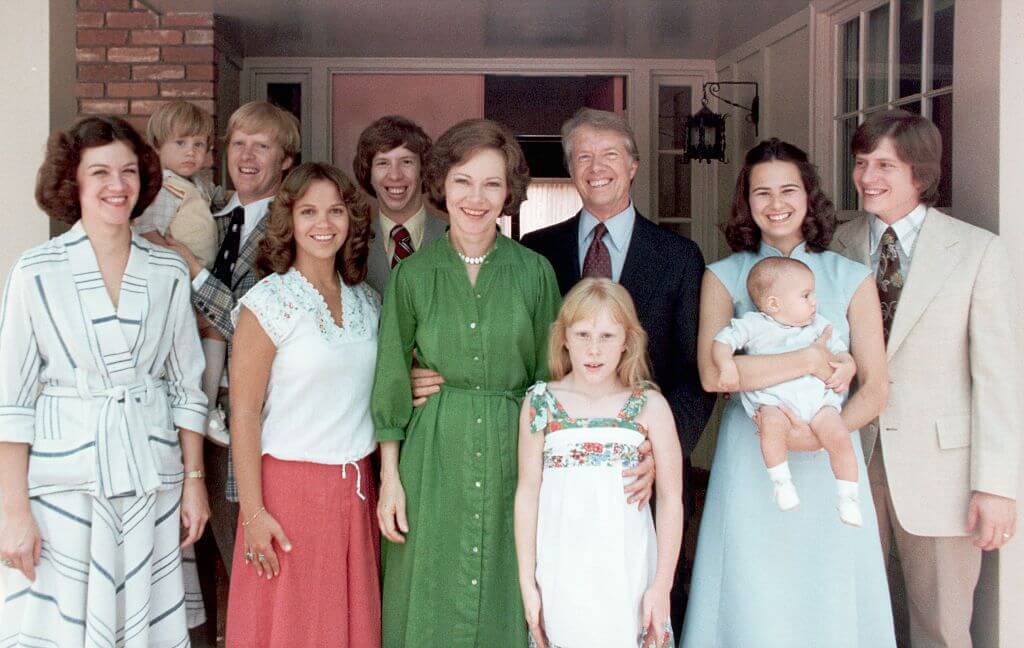
Jimmy Carter is a married man. He has been in a marital union with Rosalynn Carter since 1946, and in 2022, they marked their 76th wedding anniversary. Throughout their journey together, Rosalynn Carter has been deeply engaged in her husband’s political endeavors, offering guidance and lending her voice to various causes, notably mental health awareness and human rights advocacy.
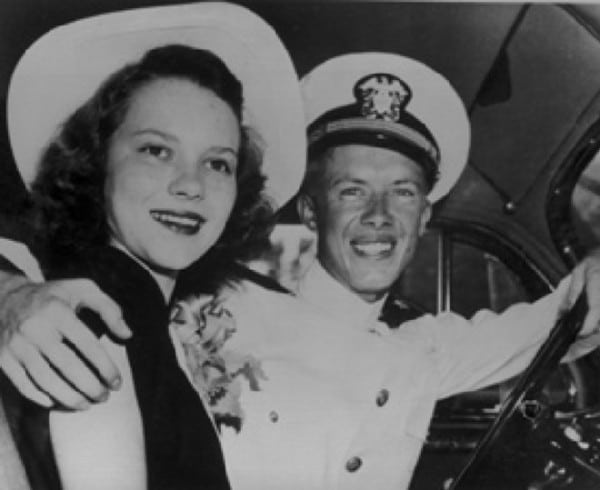
Jimmy Carter’s Military Career
Following his graduation, Carter embarked on a career in the Navy, serving on surface ships and diesel-electric submarines within both the Atlantic and Pacific fleets. With aspirations to become the Chief of Naval Operations, he pursued this goal diligently. However, fate had other plans, as he received news of his father’s passing necessitated his return to the family’s home in Georgia. Carter faced a crucial decision, taking on the responsibility of running the family business to ensure its survival. As a result, he was discharged from the Navy on October 9, 1953.
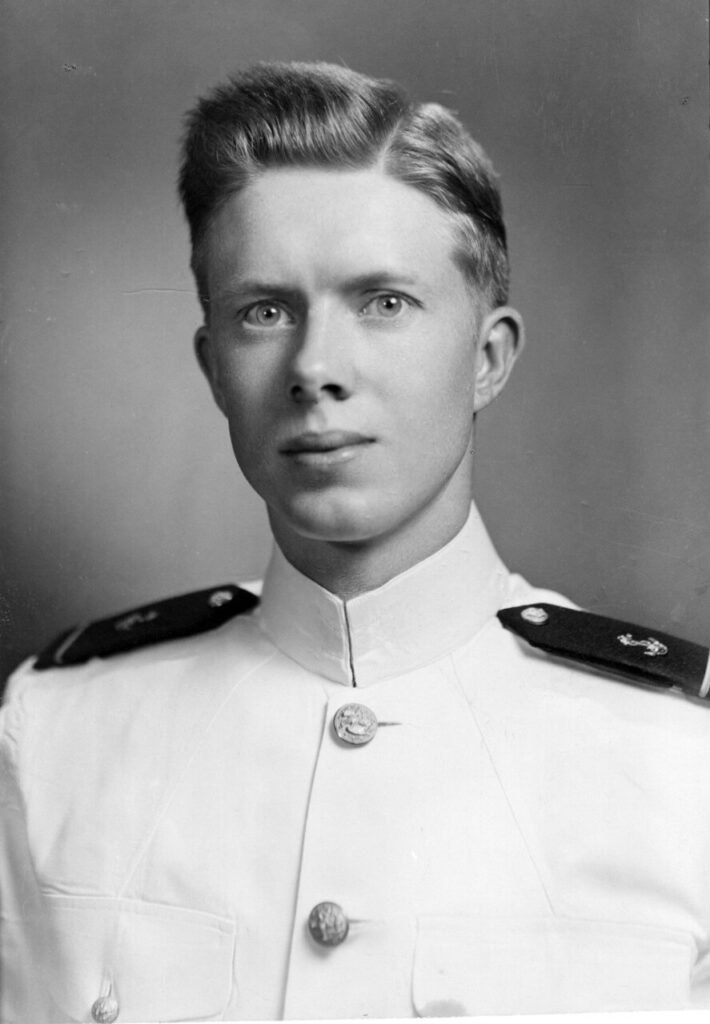
Jimmy Carter’s Political Career
Jimmy Carter’s foray into the world of politics commenced during the 1960s with his election to the Georgia State Senate, where he effectively served two terms. This was followed by his ascendancy to the role of Georgia’s governor in 1970, a position he held for a span of four years. As governor, his priorities centered around education, transportation, and ethical reforms. His prudent management of the state’s finances earned him acclaim for fiscal responsibility.
In 1976, Carter officially declared his bid for the Democratic nomination for the esteemed position of President of the United States. Campaigning as an outsider, he highlighted his background as a farmer and a devout born-again Christian. His campaign resonated with the public, securing him the Democratic nomination and eventually leading to his victory over incumbent President Gerald Ford in the general election.
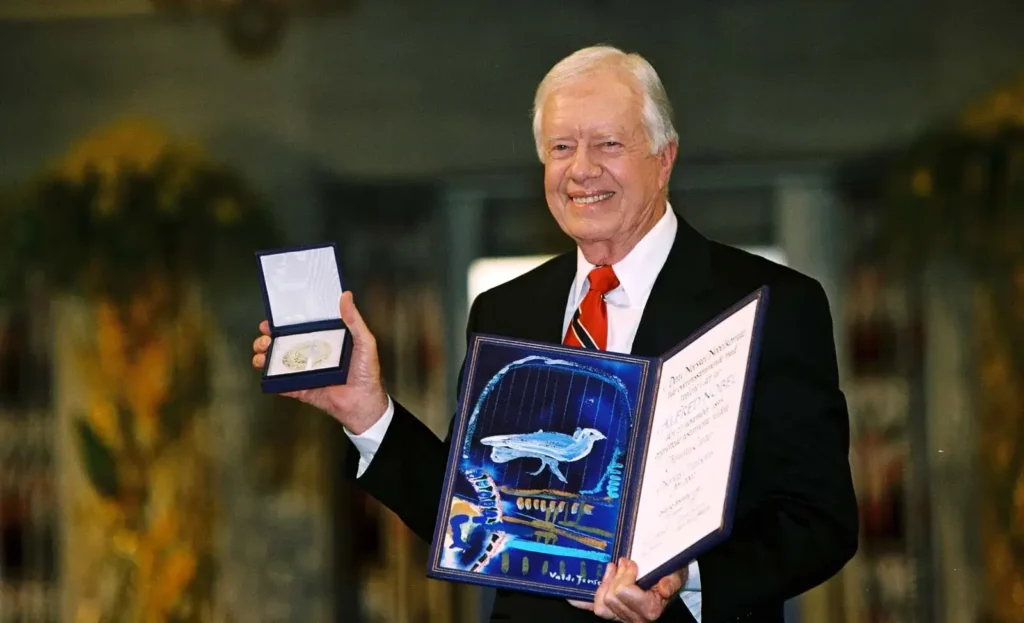
During his presidency, Carter adopted a foreign policy that placed human rights at its core. His efforts bore fruit as he successfully negotiated significant agreements, most notably the Camp David Accords, which culminated in a groundbreaking peace treaty between Israel and Egypt. Additionally, he established pivotal government departments like Energy and Education and enacted legislation that gave birth to the Superfund program, aimed at the cleanup of hazardous waste sites.
Carter confronted a host of challenges on both domestic and international fronts during his time in office. These included an energy crisis, rampant inflation, and an economic recession. Amidst these struggles, the Iranian Revolution unfolded, leading to the hostage crisis at the US embassy in Tehran. Despite fervent negotiations, the hostages were only freed after Carter’s presidential tenure came to an end.
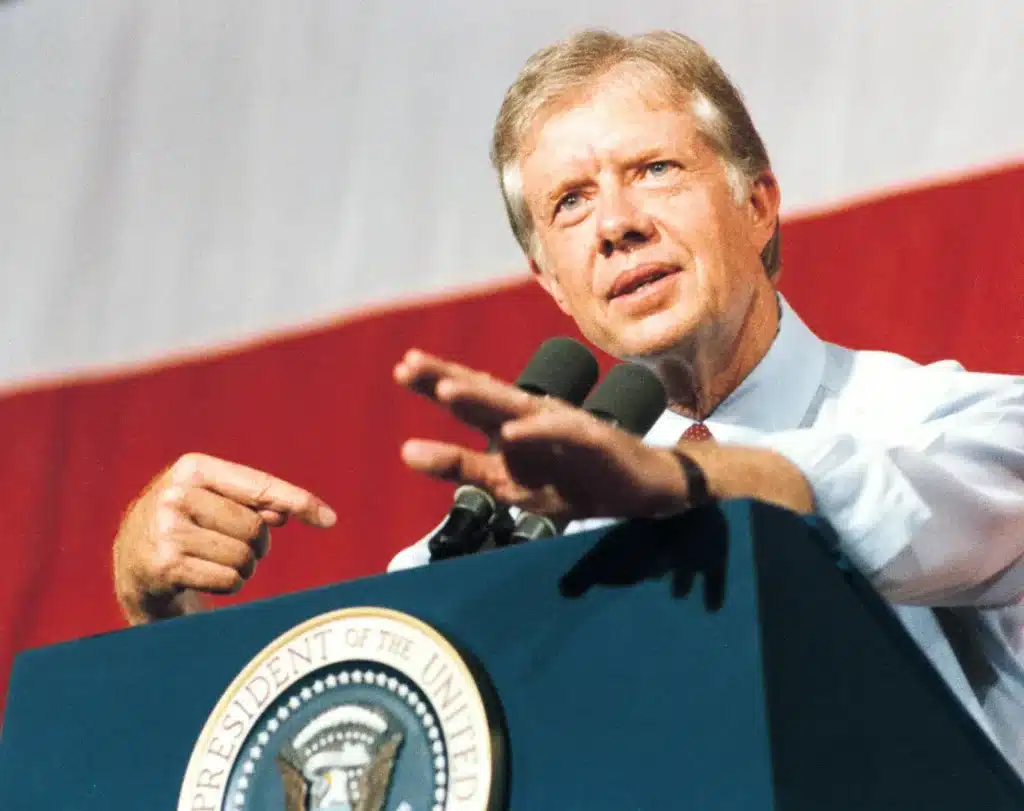
Post-presidency, Carter’s commitment to humanitarian and diplomatic causes remained resolute. He founded the Carter Center in 1982, an institution dedicated to championing democracy, human rights, and conflict resolution. Notably, Carter’s involvement extended to international election monitoring and the authorship of numerous influential books on subjects ranging from politics and religion to human rights.
Retirement and Awards
Since stepping down from the presidency in 1981, Jimmy Carter has remained an engaged figure in public affairs. He has showcased his prolific writing abilities, penning over 30 books that traverse an array of subjects encompassing politics, history, and religion.
Carter’s post-presidential journey has been adorned with a multitude of awards and commendations, a testament to his enduring impact. Several institutions and landmarks bear his name as a tribute to his legacy.
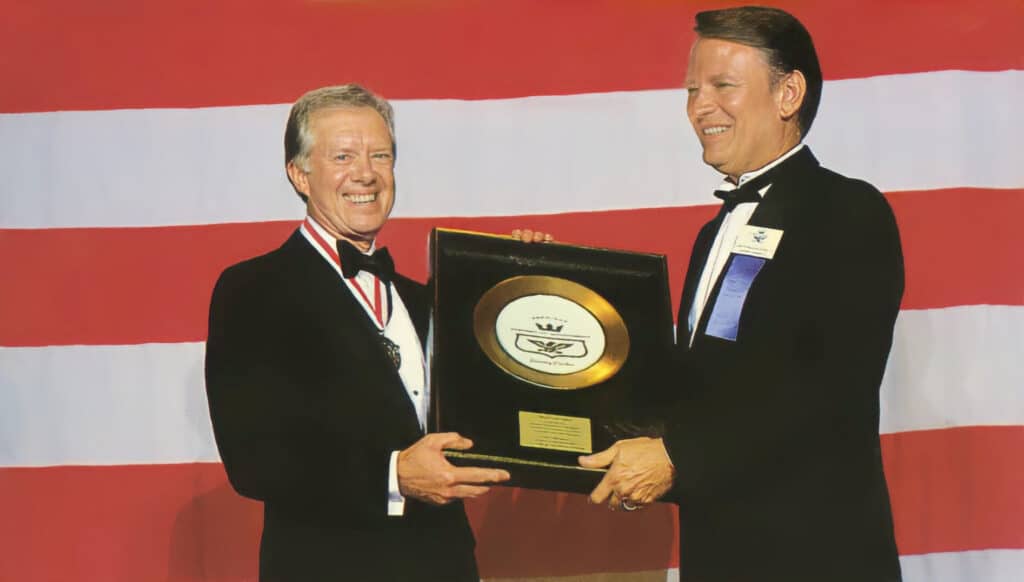
In 2002, Jimmy Carter was awarded the Nobel Peace Prize, a recognition that was in part a response to President George W. Bush’s hawkish stance towards Iraq and Carter’s candid critique of the Bush administration.
A meaningful gesture of recognition came in 2009 when the Souther Field Airport in Americus, Georgia was renamed the Jimmy Carter Regional Airport. Another accolade took shape in 1991 when Jimmy Carter was bestowed an honorary membership in Phi Beta Kappa at Kansas State University.
Jimmy Carter’s Net Worth
Throughout both his time in the presidency and his post-presidential phase, Jimmy Carter attracted substantial financial contributions. Projections indicate that Jimmy Carter’s net worth is poised to experience a robust growth of around 13% in the upcoming years. Notably, he has made considerable investments in the stock market.
Within his investment portfolio, Jimmy Carter holds significant stakes in lucrative stocks such as Berkshire Hathaway, Colgate-Palmolive, and Caterpillar, among others. It’s noteworthy that Jimmy Carter’s investment holdings contribute to over 40% of his overall wealth and net worth.
| Category | Amount |
|---|---|
| Net Worth | $60 Million |
| Assets | $49 Million |
| Liabilities & Loans | $5 Million |
| Investments | $12 Million |
| Annual Salary | $295,000 |
| Donations & Gifts | $500,000 |













